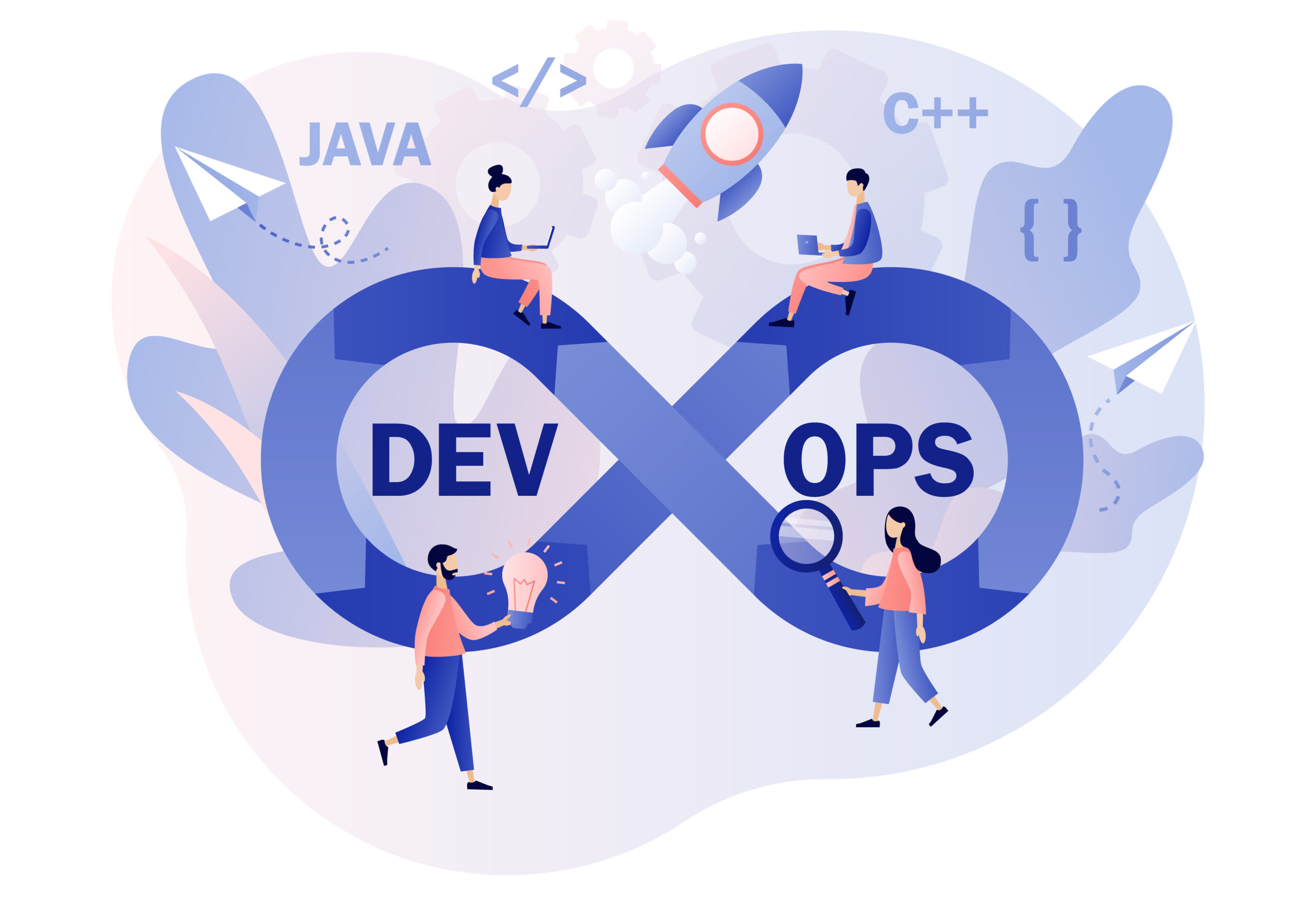Should You Hire a DevOps Team for Your Business?
If nearly everyone agreed that adopting a new technology or practice was beneficial, would you be more likely to adopt it yourself? That’s precisely the case with DevOps. In an Atlassian and CITE Research survey, 99% of IT leaders said that adopting DevOps practices has positively affected their organization.
DevOps aims to provide more team structure to everyone involved in the software development process, from developers and engineers to the project manager. In doing so, DevOps practices can support your software projects and enable them to scale as the project scope grows.
What is a DevOps team in software development and should you hire a DevOps team for your own business? This article will answer these questions and more.
What Is a DevOps Team in Software Development?

The term “DevOps” brings together the words “development” and “operations.” As the name suggests, a DevOps team contains software development and IT operations experts, facilitating collaboration across a software product’s lifecycle.
DevOps is a set of practices, tools, and philosophies that unite development and operations teams and help organizations quickly develop, test, and deliver their software and services. DevOps represents a significant shift in how groups and organizations approach software development, testing, quality assurance, and product management.
The concept of DevOps encompasses a wide range of techniques and methodologies. CI/CD pipelines are one of the most common DevOps tools. A CI/CD (continuous integration/continuous delivery) pipeline is a set of sequential processes that automatically build, test, and deploy new software features and updates:
- In continuous integration, new changes to the code base are automatically tested and merged into a shared project repository.
- In continuous delivery, these changes are automatically made available in production as soon as they pass the test suite.
DevOps is also preoccupied with concerns about IT monitoring and observability. DevOps teams regularly monitor IT systems to identify and react to software defects, improving the reliability of applications. Observability involves more profound questions about the root causes of issues and proactively solving potential problems.
What Are the Roles of DevOps Team Members?

The structure of a DevOps team can vary depending on the company’s size and needs. Some common positions that may be found on a DevOps team are:
- DevOps developers, who are responsible for writing code and building applications.
- IT operations professionals, who deploy applications and manage IT infrastructure.
- Quality assurance professionals, who test applications and check them against the given quality standards.
- Release managers, who coordinate the release of software and its deployment to the production environment.
- Project managers, who coordinate team members and ensure the project is completed on time.
A DevOps team essentially acts as a supporting arm or extension of your business, providing assistance throughout the software development lifecycle (SDLC) stages. Depending on your needs, the roles and responsibilities of a DevOps team may include the following:
- Defining the business plan for a product or service. This includes defining the target market and value proposition and setting project objectives.
- Writing software code to develop the application’s features and functionality. DevOps team members work to understand the product’s requirements and then implement the code to meet these requirements.
- Building the software ensuring that the application is ready for testing and deployment. This involves compiling the code and creating executables that can be shared with other team members.
- Continuously testing by checking that the application meets the specified requirements. This may involve automated testing tools and manual tests by quality assurance engineers.
- Releasing the product once it has been tested and deemed ready for production. Developers, IT operations, and QA must coordinate to ensure a smooth and successful software release.
- Actively monitoring to identify any software bugs or performance issues. If any concerns are raised, the DevOps team is responsible for troubleshooting and resolving them to maintain the software’s quality and stability.
Because these roles span the software development lifecycle, DevOps team members should possess various skills. For example, DevOps developers should be familiar with the necessary programming languages, while IT operations professionals should have experience with automation and monitoring tools. All DevOps team members should also have soft skills, such as communication skills, that help foster cooperation across the enterprise.
The Benefits of Hiring a DevOps Team

If you want to enjoy the benefits of DevOps without breaking your IT budget, the good news is that you don’t need to hire DevOps engineers full-time. Instead, you can hire DevOps team members from external partners as best fits your business needs and objectives.
The advantages of hiring a DevOps team include:
- Greater experience: If you’ve never implemented DevOps before, working with an external DevOps partner is a smart idea. By having someone in your corner that’s done this before, you can enjoy the wisdom that only comes with experience. Your choice of DevOps partner will be able to give suggestions and advice and better utilize your resources and budget.
- Better scalability: With more DevOps professionals at your fingertips, you can speed up the software release cycle and improve the project’s scalability. This ultimately results in more satisfactory product quality and performance.
- Faster troubleshooting: Hiring a DevOps team gives you more eyeballs to look at any problems that crop up along the way. An external DevOps partner has experience in troubleshooting and can help suggest speedy resolutions to a wide range of issues.
- Visibility and stability: Last but not least, hiring a DevOps team gives you more visibility into the entire software development lifecycle. Your choice of DevOps partner will also help make the software’s operating environment more stable and reliable, supporting the project’s long-term success.
Why Work with KMS Technology for DevOps Teams?
Hiring a DevOps team is a wise choice — so why should you work with KMS Technology in particular? KMS is an industry-leading DevOps solutions provider with a team of highly
experienced professionals, from senior DevOps engineers to project managers.
The benefits of working with KMS Technology for DevOps include:
- Expert insights: KMS has a wide range of DevOps experts on staff and more than a decade of experience in providing DevOps services.
- Collaborative culture: We prioritize communication and a healthy team dynamic where all members work toward the same goal.
- Streamlined processes: KMS helps automate business processes and strengthen business operations between teams.
- Tailor-made to your needs: Our DevOps team will listen to your goals and requirements and then build a customized design and plan for success.

Want to learn more about how KMS can help make your DevOps vision a reality? Schedule a free consultation today to discuss your business needs and objectives.







